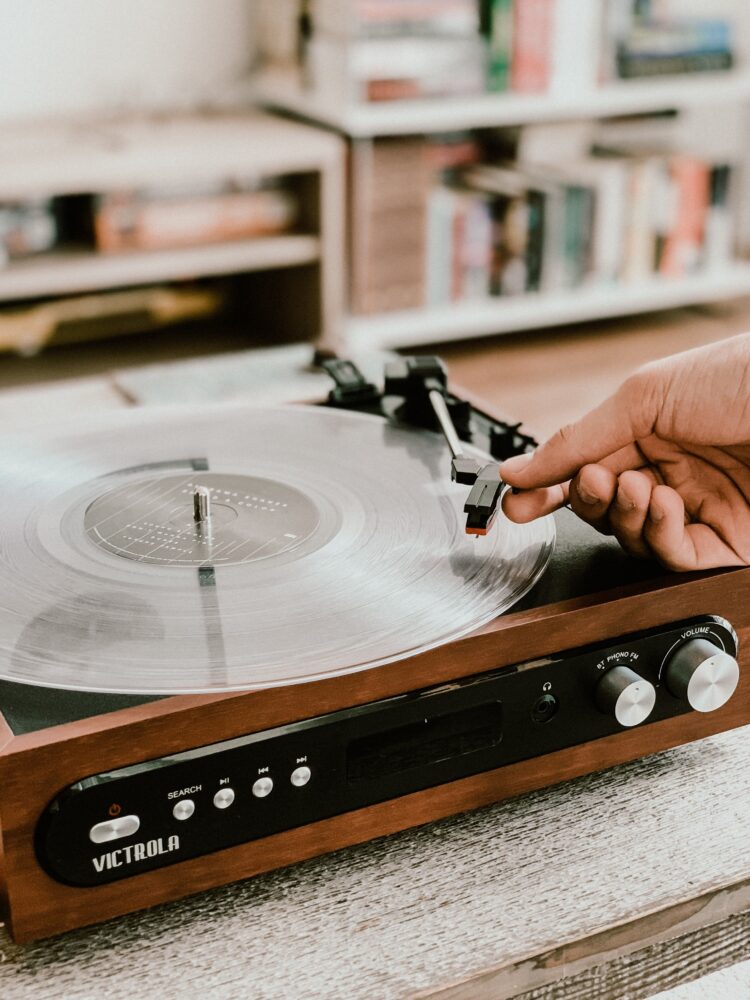
Is it worth investing in vinyl records? Vinyl has been making a comeback in recent years, and sales hit a 25-year high in 2016. Many music lovers attest to the sound quality that vinyl records produce, and the album sleeves and accompanying artwork are often seen as collectibles. Here is a quick breakdown of the phenomenon of investing in vinyl.
Vinyl in a Digital World
Almost everything today has gone digital. Data, sound, and video are stored on files and in the cloud. Many devices work on microchips and processors. So how does vinyl fit into this digital world?
Most digital files often produce sound quality that is poor due to how the files are compressed. Vinyl on the other hand gives a fuller richer sound. Vinyl recordings are sometimes referred to as a “fingerprint” of the original recording because you are hearing the music as close to the original studio recoding as possible. Fans claim that the sound quality is full and rich, and that it allows for a full listening experience.
Younger generations are discovering vinyl, and they have been the main drivers in its resurgence. Artists old and new are taking notice. A lot of newer artists are releasing their works on vinyl, and many older artists are rereleasing albums as “best of” albums.
The artwork on the large square sleeves is also giving a resurgence to many artists who are clamoring to have their works grace the front of album covers.
Vinyl as an Investment
Vinyl records produce better sound quality than their digital counterparts, but can they be an investment? Well, probably not, but certain albums can fetch a high price with collectors.
Like any collectable, you must know what to look for. Most records were massed produced, are quite common, and don’t have much value. Certain rare pressings from specific artists can command high prices, however. The Wu Tang Clan’s “Once Upon a Time in Shaolin” vinyl album sold for a staggering $2 million dollars at auction. There was only one copy ever made, so the album was extremely rare and unique. Some other examples can be found here.
The investment in vinyl is more of a personal one. People who are music buffs want the sound quality and full music experience that vinyl can offer.
Drawbacks of Vinyl
The most obvious drawback of vinyl is the physical size of the records. You will need a large space to house a sizeable collection. Collecting records can also get pricey when compared to the often low cost of downloading a song.
Vinyl also tends to be more delicate than other forms of music storage. Records are prone to scratching, and they must be stored in climate and humidity-controlled environments. Warping can be present even on a brand-new record causing the risk of a poor-quality sound experience.
Equipment to play records can be extremely expensive, require a lot of maintenance, and it can be hard to find reliable reviews on quality.
Vinyl often doesn’t hold its value well. Only a very small number of albums will see major price appreciation. For this reason, it is usually not recommended to collect vinyl solely as an investment.
Wrapping Up
Is it worth investing in vinyl records? From the standpoint of collecting them as a means of financial gain, then you should invest your money elsewhere. Most records won’t appreciate or even hold their value. Only a select few albums will ever command a premium price.
Investing in vinyl records should be more personal than financial. If you truly love music and want a full music experience, then vinyl records could be a good option. It is argued that the sound quality is superior, and that the artwork that accompanies the album gives a memorable and more complete experience.
Read Also:
Alternative Investments: Still the Road to Riches?
The Pros and Cons of Investing in US Farmland
4 Things To Know Before Investing In Gold
How to Renovate Your Basement On a Budget

Based in the Pittsburgh, PA area, Brian holds full-time employment as a Warehouse Manager for an electronics firm. Brian enjoys wealth building, investing, gardening and the great outdoors. Brian holds a B.A. in Environmental Studies from the University of Pittsburgh and an MBA from Robert Morris University.









